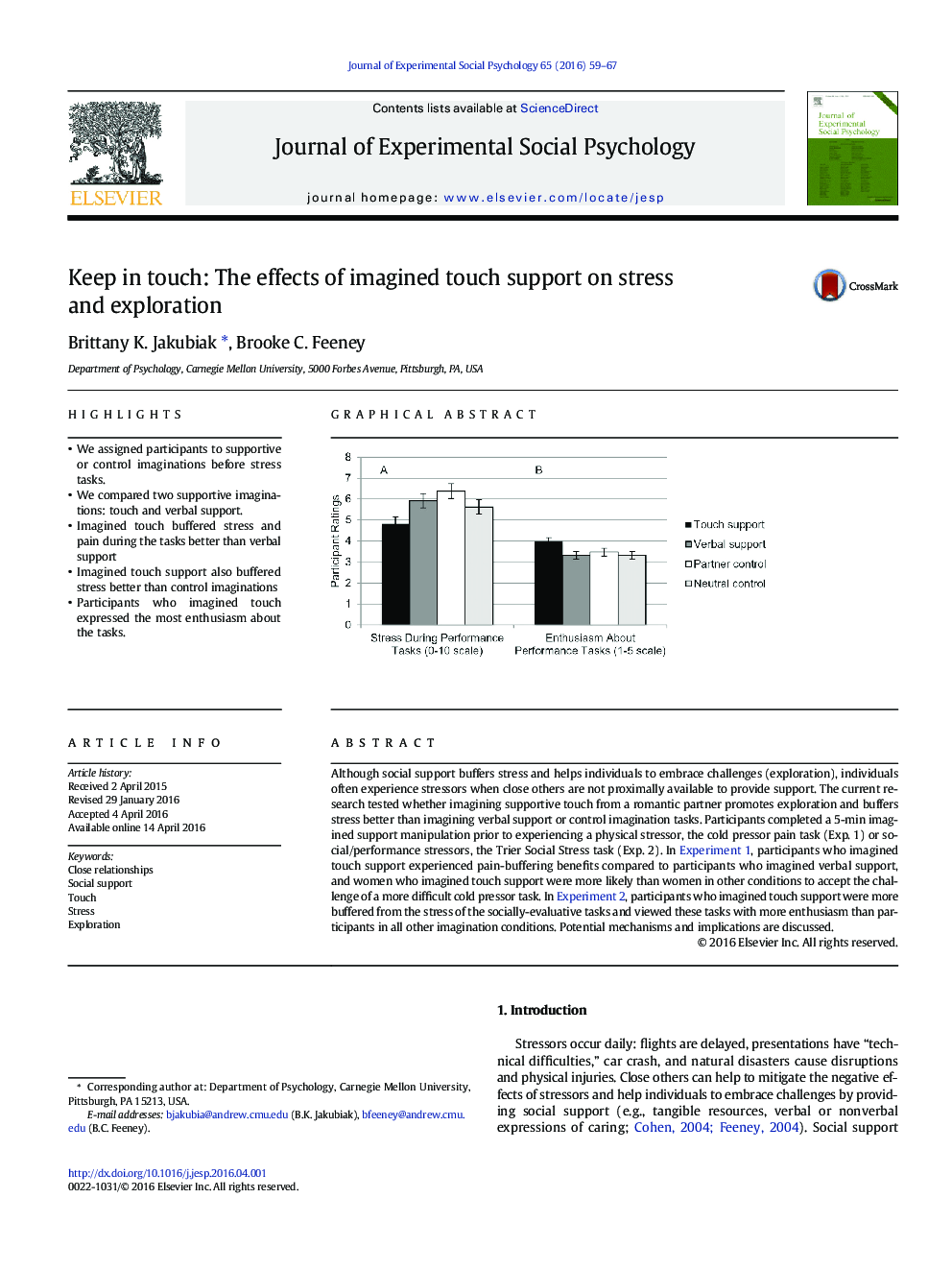| کد مقاله | کد نشریه | سال انتشار | مقاله انگلیسی | نسخه تمام متن |
|---|---|---|---|---|
| 947664 | 1475858 | 2016 | 9 صفحه PDF | دانلود رایگان |
• We assigned participants to supportive or control imaginations before stress tasks.
• We compared two supportive imaginations: touch and verbal support.
• Imagined touch buffered stress and pain during the tasks better than verbal support
• Imagined touch support also buffered stress better than control imaginations
• Participants who imagined touch expressed the most enthusiasm about the tasks.
Although social support buffers stress and helps individuals to embrace challenges (exploration), individuals often experience stressors when close others are not proximally available to provide support. The current research tested whether imagining supportive touch from a romantic partner promotes exploration and buffers stress better than imagining verbal support or control imagination tasks. Participants completed a 5-min imagined support manipulation prior to experiencing a physical stressor, the cold pressor pain task (Exp. 1) or social/performance stressors, the Trier Social Stress task (Exp. 2). In Experiment 1, participants who imagined touch support experienced pain-buffering benefits compared to participants who imagined verbal support, and women who imagined touch support were more likely than women in other conditions to accept the challenge of a more difficult cold pressor task. In Experiment 2, participants who imagined touch support were more buffered from the stress of the socially-evaluative tasks and viewed these tasks with more enthusiasm than participants in all other imagination conditions. Potential mechanisms and implications are discussed.
Figure optionsDownload as PowerPoint slide
Journal: Journal of Experimental Social Psychology - Volume 65, July 2016, Pages 59–67
